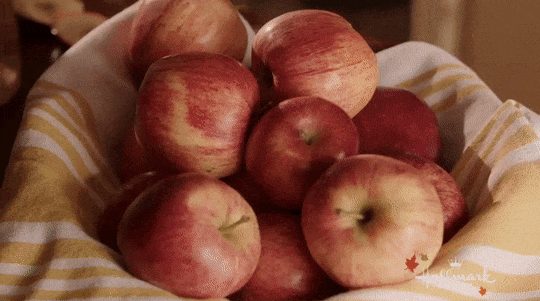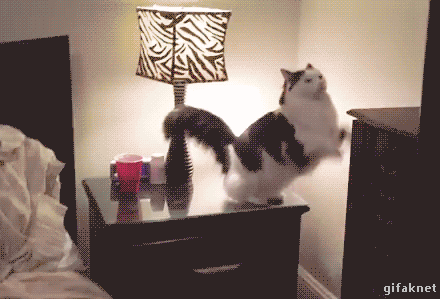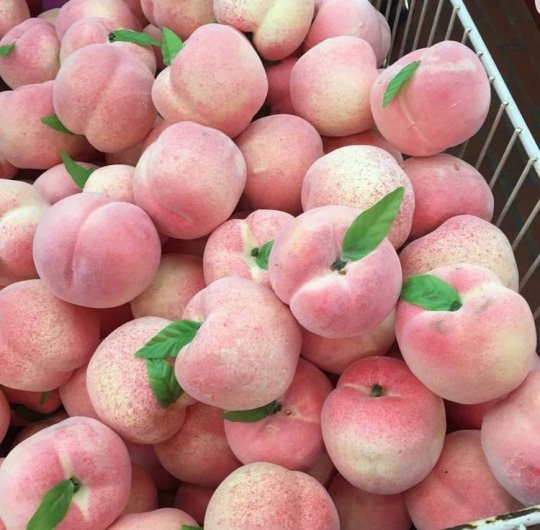Text
What does " de quoi " mean in French ?
Avoir + de quoi + verbe à l'infinitif = to have the means/the equipment to do something
- Vous avez de quoi faire des lasagnes chez vous ? // Do you (plural or formal) have the ingredients to make lasagna at home ?
Note : When talking about food, it will usually mean "do you have the ingredients to make...." but it might also refer to the equipment required, such as an oven/a wok...
- T'as de quoi prendre des notes ? // Do you have something to take notes on/with ?
- T'as de quoi payer sur toi ? // Do you have any money on you?
You can also use this structure with other verbs like "acheter" (to buy) ou "prendre" (to bring) for example :
- J'ai acheté de quoi faire des crêpes. // I bought the necessary ingredients to make some crêpes.
Note 1 : It might also refer to a specific kind of pan used to make crêpes.
Note 2 : Crêpes and pancakes are absolutely not the same thing and I refuse to use those words interchangeably.
- J'ai pris de quoi lire. // I brought something to read with me.
- J'ai pris de quoi manger. // I brought something to eat with me.
Avoir + de quoi + verbe à l'infinitif can also be translated as "to have enough (of something) to do something :
- J'ai de quoi vivre confortablement pendant un an sans travailler // I have enough (money) to live comfortably for a year without working.
- J'ai, dans mes placarts, de quoi manger pendant un mois. // I have, in my cupboards, enough (food) to eat for a month.
Other uses of "de quoi"
-> À la suite de quoi = Whereupon
-> Some verbs might require the use of "de quoi" in certain cases :
- Il n'y a pas de quoi s'inquiéter. // There is nothing to worry about.
- Il n'y a pas de quoi s'énerver. // There is nothing to get worked up about.
- Je ne comprends pas de quoi on parle. // I don't understand what we are talking about.
- Mais de quoi tu parles ? // What the hell are you talking about ?
Note : Be careful with "mais" at the beginning of a question, it is the equivalent of "what the hell"/"what on earth"
Mais qu'est ce que tu fais encore là ? // What the hell are you still doing here ?
187 notes
·
View notes
Text
have my first final in 2 hours hate it here </3
20 notes
·
View notes
Text
𝕮𝖍𝖊𝖒𝖎𝖓𝖘 𝖉'𝕳𝖊𝖐𝖆𝖙𝖊 • 𝕬𝖙𝖍𝖆𝖓𝖆𝖘𝖘𝖎𝖆 𝖅𝖔𝖌𝖗𝖆𝖋𝖔𝖚
L'intégrale en français...je savais pas qu'il était dispo! Je vais mourir de joie 🧙
The whole book in french...
12 notes
·
View notes
Text
The internet is so filthy tellement dégoûtant
143 notes
·
View notes
Text
Savage expressions
Avoir été bercé-e trop près du mur (having been rocked too close from the wall as a baby) : being very stupid
Être fini-e à la pisse (being finished with piss, during conception) : being a crappy/completely useless human being
Avoir une tête de vainqueur (looking like a winner) : looking dumb
Con comme la lune/un balai/un manche/ses pieds/une chaise (dumb like the moon/a broom/a handle/feet/a chair)
Ne pas être une flèche/lumière (not being an arrow/light) : being dumb
Marie-Chantal : generic name of a rich snob despicable lady
Ne pas se prendre pour de la merde (not thinking of one as shit) : acting entitled, proud, selfish
Pompe à merde (shit pump)
Saoul-e comme un Polonais (drunk like a Polish man)

657 notes
·
View notes
Text
Famous sayings #1
À bon chat bon rat (To good cat good rat) : train cats to hunt rats and they’ll become great rat hunters but the rats great cat avoiders as well
À coeur vaillant, rien d’impossible (To a brave heart, nothing’s impossible)
À la guerre comme à la guerre (To the war like to the war) : when you’re In need, use whatever you can find and don’t expect help
Après la pluie le beau temps (After rain comes fine weather)
Après l’effort le réconfort (After effort comes solace) : you deserve a treat after working hard
Au royaume des aveugles, les borgnes sont rois (In the kingdom of the blinds, the one-eyed are kings)
Aux grands maux les grands remèdes (To big problems big solutions)
Ce n’est pas à un vieux singe qu’on apprend à faire la grimace (You don’t teach old monkeys to make funny faces) : elders know better than you
Ce n’est pas tombé dans l’oreille d’un sourd (It didn’t fall in a deaf man’s ear) : I’m happy/intrigued/excited about what you said
C’est dans les vieux pots qu’on fait les meilleures soupes (It’s in the old pots we make the best soups) : the old methods are often the best
C’est en forgeant qu’on devient forgeron (Forging makes you a blacksmith) : you have to practice to become a pro
C’est l’hôpital qui se fout de la charité (That’s hospitals mocking charity) : don’t speak ill of someone about something you do too
Chassez le naturel, il revient au galop (Chase away nature and it’ll be back at full speed)
Coeur qui soupire n’a pas ce qu’il désire (Sighing heart doesn’t have what it wants)
comme le nez au milieu de la figure (Like the nose in the middle of the face) : about something obvious
Faute avouée à moitié pardonnée (Confessed mistake half forgiven)
Il faut battre le fer tant qu’il est chaud (Strike while the iron’s hot)
Other sayings posts

2K notes
·
View notes
Text
About working
To work hard : travailler dur, se donner du mal, v
To get to work : se mettre au travail, v
To hire : embaucher, v ; to fire : renvoyer / virer (fam), v
To quit : démissionner / donner sa démission, v
Being payed : être payé-e
Work experience/internship : stage (m)
Training : formation (f)
Company : entreprise (f), boîte (f, fam)
Bankruptcy : faillite (f), être en faillite, v
Boss : patron-ne, chef-fe, supérieur-e (also an adj)
HR : RH, ressources humaines (f, pl)
Administrator : gestionnaire (ep)
Worker : travailleur/se, employee : employé-e, coworker : collègue (ep)
Receptionist : hôte-sse d’accueil (we usually use the feminine form)
Trainee : stagiaire (ep)
Salary : salaire (m)
Skills : compétences (f)
Profit : bénéfices (m, pl)
Pay slip : fiche de paie (f)
Employment contract : contrat de travail (m)
Project : projet (m)
Office : bureau (m) (also the word for a desk)
Break : pause (f)
Part-time : mi-temps, full-time : plein-temps
Flexitime : horaires aménagés (m)
Freelance : free-lance, indépendant-e
Extra hours : heures supp(lémentaires) (f)
I’m working on something : je travaille sur quelque chose
Busy : occupé-e, adj
Day off : congé(s) (m), vacation : vacances (f, pl)
Paid leave : congé payé

During an interview :
Parlez-moi de vous : tell me about you
Quels sont vos points forts : what are your strengths
Quelles sont vos faiblesses : what are your weaknesses
Pourquoi devrions-nous vous embaucher : why should we hire you
Qu’est-ce qui vous motive à propos de ce poste : what motivates you about that job
Avez-vous des questions : do you have any questions
Quand pouvez-vous commencer : when can you start working
Pourquoi devrais-je vous choisir : why should I chose you
Quelles sont vos prétentions salariales : what are your salary expectations
Savez-vous travailler en équipe : can you work in a team
Où vous voyez-vous dans cinq ans : where do you see yourself in five years
Savez-vous parler anglais : can you speak english
Que savez-vous de notre entreprise : what do you know about our company

2K notes
·
View notes
Text
Être- expressions
Être à cheval sur les principes - being very serious about one’s principles
Être à la masse - having no idea what’s going on (informal)
Être bête à manger du foin - being extra stupid
Être charrette - being late or overloaded with work (informal)
Être cloué au lit - being sick in bed
Être dans de beaux/sales draps - being in trouble
Être dans la mouise - being in trouble
Être dans le rouge - going into overdraft (bank)
Être dans les bras de Morphée - being asleep
Être dans les pommes - having fainted
Être dans ses petits souliers - being in an embarrassing situation
Être de mèche - being the accomplice of someone
Être dur d’oreille - being hard of hearing
Être en cloque - being pregnant (rude)
Être en couches - being in bed after giving birth
Être en porte-à-faux - being in an embarrassing situation
Être fait comme un rat - being done for
Être fini à la pisse - being extra stupid (rude)
Être habillé à l’as de pique - being badly dressed
Être le dos au mur - being cornered, having to face consequences
Être pédé comme un phoque - being super gay (rude)
Être pendu aux lèvres de - listening to someone with attention
Être sous les projecteurs - getting a lot of attention
Être sur la bonne route - going the right way
Être sur la corde raide - being in a complicated situation
Être sur le bord de l’abîme - being in a complicated situation
Être sur les dents - being mad
Être sur une mauvaise pente - making bad action after bad action
Être verni - being super lucky
Être vert de rage - being extra mad

624 notes
·
View notes
Note
Hello!
I'm trying to find some resources about gendering language in French, as we do in German with a * between the masculine and feminine ending! I saw some people use les ami.e.s for example, but it's hard to find anything, especially when your French isn't on the level where you can understand what a google search gives you. Do you have any info regarding that?
Hello,
We usually use a point médian (Les agriculteur·rice·s) or regular dots (Les ami.e.s) for nouns and adjectives - I’ve been using a singular dash (Les boulanger-es) since 2014 and adding a slash (Les instituteurs/trices) when necessary because no one was sure what to do at the time. (Yes, mum is an OG.)
When it comes to pronouns, we use Iel(s) and have invented neutral versions of other ones like Toustes (All) or Celleux (Those). You can also just say Celles et ceux or Toutes et tous (the feminine goes first), although it remains binary.
“All my friends are tall” would be Toustes mes ami·e·s sont grand·e·s.
Hope this helps! x
31 notes
·
View notes
Link
Hello! I used to be jeanlucgodard but tumblr terminated my account. I tried really hard to get it back, but they never responded to me. I was very known in the french community for my google drive of french new wave films. Here is the link again! I would very much appreciate if you could reblog so people can know what happened to me and have access to this drive again. Thank you!
1K notes
·
View notes
Text
Internet French
As promised, some keyboard slang (we stole a lot from you)(sue us). I wrote what is accurate at the moment, a few years ago it was quite popular to write lik this m8 but it became pretty unhip (I could tell you that you can type “aussi” (: too, as well) “O6″ but literally no one has done that since 2008) most people write normally and add some of the following words :
Basics :
jpp (je n’en peux plus) : I can’t stand it anymore, I’m dying from the lols
osef (on s’en fout) : no one cares
mdr (mort-e de rire) / ptdr (pété-e de rire) : lol
cmb / ctb (comme ma bite/comme ta bite) “like my dick/like your dick” : easy punchline to almost anything, ex : ‘the line was so long!’ ‘cmb’ ‘you have a short memory’ (tu as la mémoire courte) ‘ctb’
cmt (comment) : how / cmb (combien) : how much/many
slt (salut) / bjr (bonjour) / bsr (bonsoir) : hello
bn (bonne nuit) : good night
bcp (beaucoup) : a lot, much, many / tp (trop) : too, too much
mtnt (maintenant) : now / ajd (aujourd’hui) : today / jms (jamais) : never
srtt (surtout) : especially, above all / vrmt (vraiment) : really
jsp (je ne sais pas) : I don’t know / ms (mais) but
pr (pour) : for / pcq / pq (parce que) : because
pq / pk (pourquoi) : why
ss (sans) : without OR (sous) : under / sr (sur) : over, on
tt (tout) : all, everything OR (tant) : so much, as long
mn (mon) : my (m) / tn (ton) : your (m) / sn (son) : his/her
ns (nous) : we OR (nos) : ours / vs (vous) : you (pl) OR (vos) yours (pl) / lr (leur(s)) : their / theirs
fr (faire) : to do, make
tmtc (toi-même tu sais) : you know what I’m talking about, private joke
tkt / tqt (ne t’inquiète pas) : don’t worry
c (c’est) : it is OR (sais/sait) : know (½/3p sg) / ct (c’était) : it was
d (des) : some, ex : mange des chips / t (tes) : your (pl for one person)
h (heure) : time/hour, ex : on se voit à ql h? (at what time do we meet?)
keske (qu’est-ce que) : what is, ex : qu’est-ce c’est?
kesta (qu’est-ce que tu as) : what’s up/wrong with you?
ke / q (que) : that/what, ex : ke ve tu? (what do you want?)
ql / kel (quel(s)/quelle(s)) : what/which
askip (à ce qu’il paraît) : from what I’ve heard, apparently…
oklm (au calme) : relaxed, calm, ex : petite soirée oklm
Borrowing to english or kids :
go : to leave (j’y go)
dodo (beddy byes) : to sleep, sleeping (je vais dodo)
miam (aka “yum”) : to eat (je vais miam)
lol, the legendary
chiller : to go somewhere and not do shit
fat : something big/amazing, ex : cette soirée est trop fat!
Dropping the vowels :
It’s hard to explain but since so many words in french contain “ou”, “an”, “ai” or “on” (…), when we need or want to make verbs (or possessive pronouns as we have already seen) smaller, we drop those letters and the other person guesses what’s missing regarding the context.
A few examples (but you can play with lots of other verbs) :
vx / vt (veux/veut) : to want, ½/3psg, ex : tu vx d pom? je ss o magasin (do you want apples? I’m at the store) ; (voit) : to see, meet, 3psg
ss / st (sais/sait) : to know, ½/3psg ; (suis/suit) : to follow, ½/3psg ; (suis/sont) : to be 1psg+3ppl, ex : où st t chats? (where are your cats?)
cns (connais) : to know someone, 1p sg
pvs (pouvons) : to can, be able/allowed to, 1p pl

Please note : I have used 1/2/3psg or pl several times in that post, if you have doubts it means that those forms are the conjugated forms - Reminder : je / tu / il-elle-on (singulier) ; nous / vous / ils-elles (pluriel).
3K notes
·
View notes
Text
norwegian resources (for @fairuzgf)
Norwegian on the Web — free course by NTNU
Barnebøker for Norge (children’s books for norway) — free norwegian children’s books for a variety of levels & they also have audio! also they have an option to go between bokmål and nynorsk which is pretty fun
Klart Det! — for more advanced lessons (B2+)
Norwegian Teacher Karin on youtube — she doesn’t upload that frequently anymore but her past videos are super helpful
NorwegianClass101 on youtube
Future Learn Introduction to Norwegian — free four week course by the university of oslo
På Vei (textbook) — this is a beginner textbook but it’s entirely in norwegian so a bit of knowledge of norwegian is needed
På Vei Digital — free exercises to go along with på vei
Exploring Norwegian Grammar — free grammar website made by kirsti macdonald who co-wrote på vei
Loecsen Learn Norwegian — another free (very beginner) course
norwegian dictionary with both bokmål and nynorsk — not a translation dictionary but just a regular one but it has both bokmål and nynorsk
NRK Nyheter — this is a bit advanced obviously but NRK is my go-to if i want norwegian reading practice (it’s just news but also NRK has tv programs as well including skam & they also have radio)
SKAM website full episodes — you’ll need a vpn but they have norwegian subtitles also it’s great for learning how people speak every day
Lovleg episodes — same as above (you’ll need a vpn) also lovleg will be a little hard to understand if you’re learning bokmål bc it’s very dialect-y but another show to watch in norwegian that i think is good
my norwegian playlist on spotify — it’s not super long but good for discovering norwegian music if you don’t know any :-)
edit bc my friend recommended these 2 podcasts:
Norsk for Beginners — for A1-A2 learners
Lær Norsk Nå — for B1-B2 learners
<333
491 notes
·
View notes
Text
Expressing pain/symptoms
My (body part) hurts: "I am hurt at the "body part" - we don't use a possessive as the body part is necessarily ours.
Ex: J’ai mal à la jambe: My leg hurts.
Having a hard time doing something: J'ai du mal à + verb
Ex: J'ai du mal à respirer: I have trouble breathing
Acouphènes, f: Tinnitus
Amaigrissement, m: Weight loss
Angoisses, f: Anguish, anxieties
Asymptomatique: Asymptomatic
Ballonnements: Bloating
Bouche sèche, f: Dry mouth
Bouffées de chaleur, f: Hot flashes
Bouton, m: Pimple
Brûlure, f: Burn
Congestion nasale, f: Stuffy nose
Constipation, f: Constipation
Convulsions, f: Convulsions
Courbatures, f: Body aches
Cracher du sang: Spitting blood
Crampes, f (period)/une crampe (muscle): Cramps
Croûte, f: Scab
Délire, m: Delirium
Démangeaison, f: Itch
Douleurs musculaires, f: Muscle pain
Diarrhée, f: Diarrhea
Dysphorie, f: Dysphoria
Engourdi-e: Numb
Engourdissement, m: Numbness
Enroué-e: Hoarse
Enrhumé-e: Having a cold (adjective)
Épuisé-e: Exhausted
Éruption cutanée, f: Skin rash
Éternuement, m: Sneeze
Éternuer: Sneezing
Être malade: Being sick
Essouflé-e: Short of breath
Extinction de voix, f: Loss of voice
Fatigué-e: Tired
Fièvre, f: Fever
Fiévreux/euse: Feverish
Flatulences, f: Flatulency
Fourmillements, m: Pins and needles (Fourmi: ant)
Frissons, m: Shivers
Frissonner: Shivering

Ganglions, m: Swollen glands
Gargouillements, m: Gurgling
Glaires, m: Phlegm
Gonflé-e: Swollen, Bloated (belly)
Gonflement, m: Swelling
Griffe, f: Scratch
Grosseur, f: Lump
Hyperventilation, f: Hyperventilation
Jambes lourdes, f: Tired/heavy legs
Nausée, f: Nausea
Ne pas se sentir bien: Not feeling well
Ne plus goûter/perdre le goût: Not having a sense of taste
Ne plus sentir les odeurs/perdre l'odorat: Not having a sense of smell
Nez bouché, m: Blocked nose
Nez qui coule, m: Runny nose
Oeil qui pique, m: Itchy eye
Oeil qui pleure, m: Watery eye
Oreilles qui sifflent, f: Ringing ears
Pâleur, f: Paleness
Paralysie, f: Paralysis
Perte d'appétit, f: Loss of appetite
Perte de mémoire, f: Memory loss
Perte d'équilibre, f: Loss of balance
Point de côté: Side stitch
Pulsative: Throbbing
Pupilles dilatées, f: Dilated pupils
Rage de dents: Raging toothache
Régurgitations, f: Regurgitations
Rhume, m: Cold
Rougeurs, f: Red patches
Salivation, f: Salivation
Sécheresse, f: Dryness
Sécrétion, f: Discharge
Sensibilité au toucher, f: Sensitivity to touch
Somnolence, f: Drowsiness
Souffle au coeur, m: Heart murmur
Syncope, f: Blackout
Tousser: Coughing
Toux, f: Cough
Toux sèche, f: Dry cough
Transpiration, f: Sweatiness
Tremblements, m: Shaking
Vaginisme, m: Vaginismus
Vertiges, m: Dizziness
Vomir: Puking
Vomissements, m: Vomiting
Vocabulary post about health/illnesses

233 notes
·
View notes








